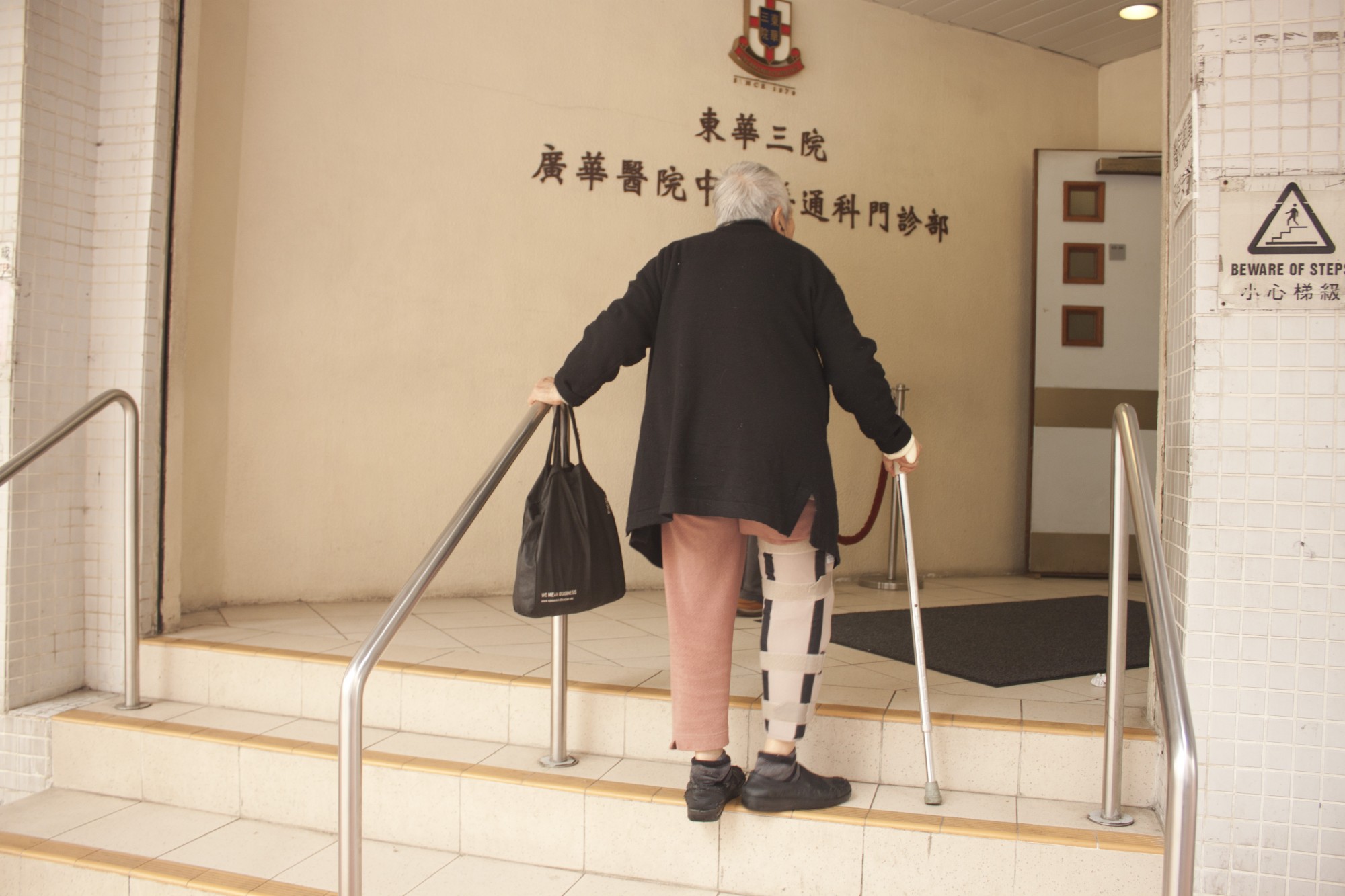Dr Choi Kin, the president of HKMA and member of the Medical Council, says the licensing exam is supposed to be on a par with the final Bachelor of Medicine exam of both the Chinese University of Hong Kong (CUHK) and University of Hong Kong to ensure all overseas doctors meet a basic standard to safeguard the health care of the public.
Choi is strongly opposed to the employment of the nine overseas-qualified doctors who avoided the licensing examination. He points to licensing examinations and other hurdles other countries, such as the United States and Canada, set before they will allow overseas-qualified doctors to practise there.
Choi believes the hiring of overseas-qualified doctors in general will have a detrimental effect on the health of local citizens. He gives a hypothetical example of a young medical graduate from Ireland who has only worked as a radiation oncology doctor being thrown into the Accident and Emergency Department of Tseung Kwan O Hospital.
“Blunders are bound to be made. I only hope life will not be lost,” he says. “Local doctors do not want to babysit these foreign graduates for their mistakes.”
Choi also disputes the HA’s statement that the nine recruits are all locally-born Cantonese speakers. The HA does not want to disclose the identity of the doctors concerned for reasons of privacy and the sensitivity of the issue.
Not all concerned parties are critical of the scheme, however. The Hong Kong Patients’ Rights Association told Varsity it felt the HA’s “stringent and lengthy employment procedure can safeguard the public patients’ interest”.
However, UK-trained Vinci Ma feels the new arrangements do not go far enough and are still unfair to overseas doctors. “Training needs to get accredited,” she says. “[The MCHK] does not recognise all the training in the UK.”
When Hong Kong was under British rule, there was a reciprocal arrangement under which doctors from the British Commonwealth were allowed to get registered and practise here. The rule was abolished upon the handover.
Professor Enders Ng Kwok-wai, associate dean (development) of the Faculty of Medicine at CUHK, gives a conditional view on whether recruiting overseas doctors can help alleviate the heavy workload in public hospitals.
Ng says that bringing in specialists could be beneficial as they could help train Hong Kong’s younger doctors. In contrast, junior doctors coming from overseas would dilute existing training opportunities for local doctors.
“They become a burden to our system because we have to provide training for them and they would also take away the training opportunities of our local medical graduates,” he says.
Regardless of the types of overseas doctors brought in, Ng believes they should all have to take the exams. “We have to make sure that the quality and the standard of the overseas doctors meets the local standards,” he says. “We know very well that the standards of medical schools from around the world are not equal. We need to make sure the qualities of these overseas doctors are good enough to serve the local population.”










































I guess its natural human behaviour to oppose something which ppl see as hurting them in some sense. Its upto to decision makers to take appropriate steps, which may be bitter at times. I came across http://www.medicareerinfo.com which provides step by step registration requirements for practicing as doctor in hong kong.